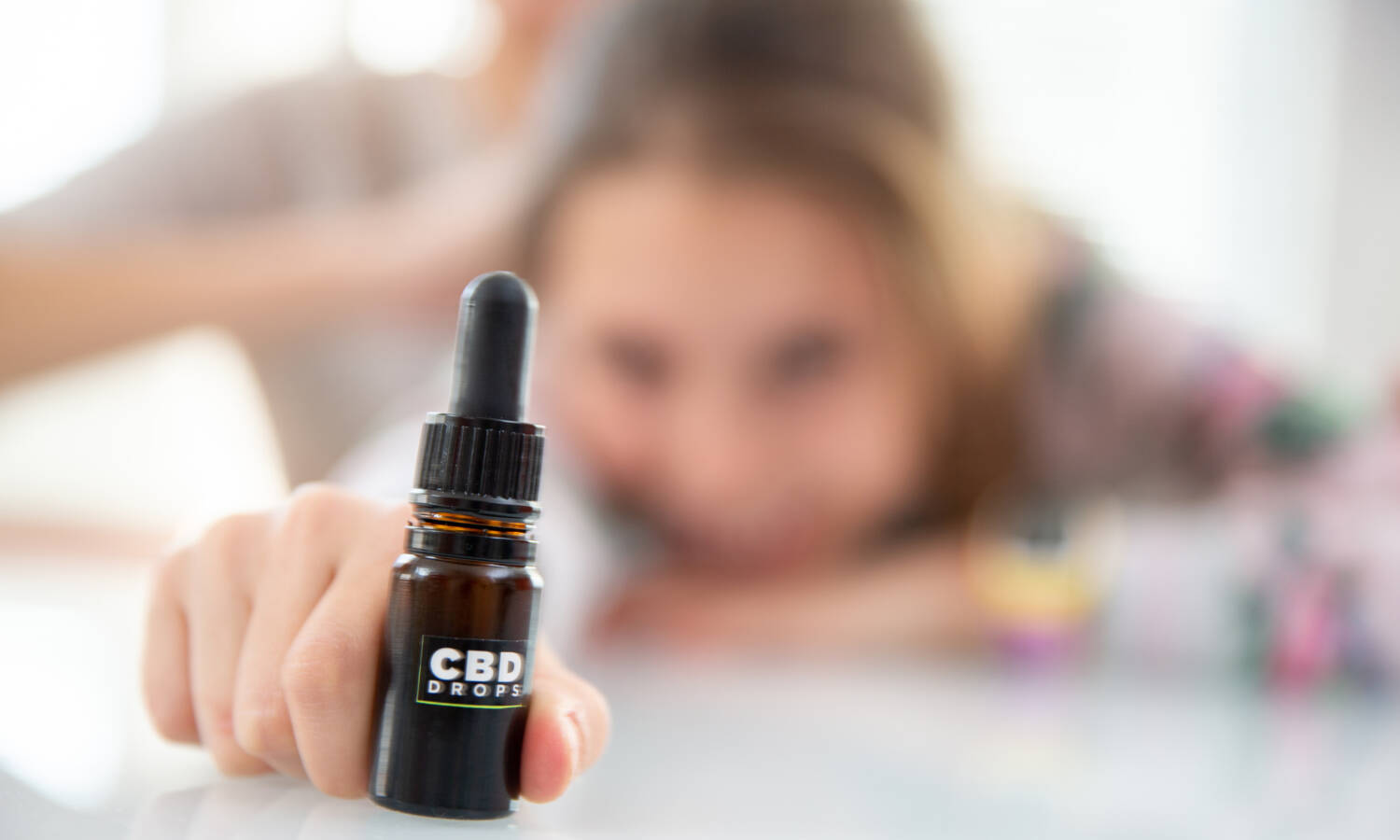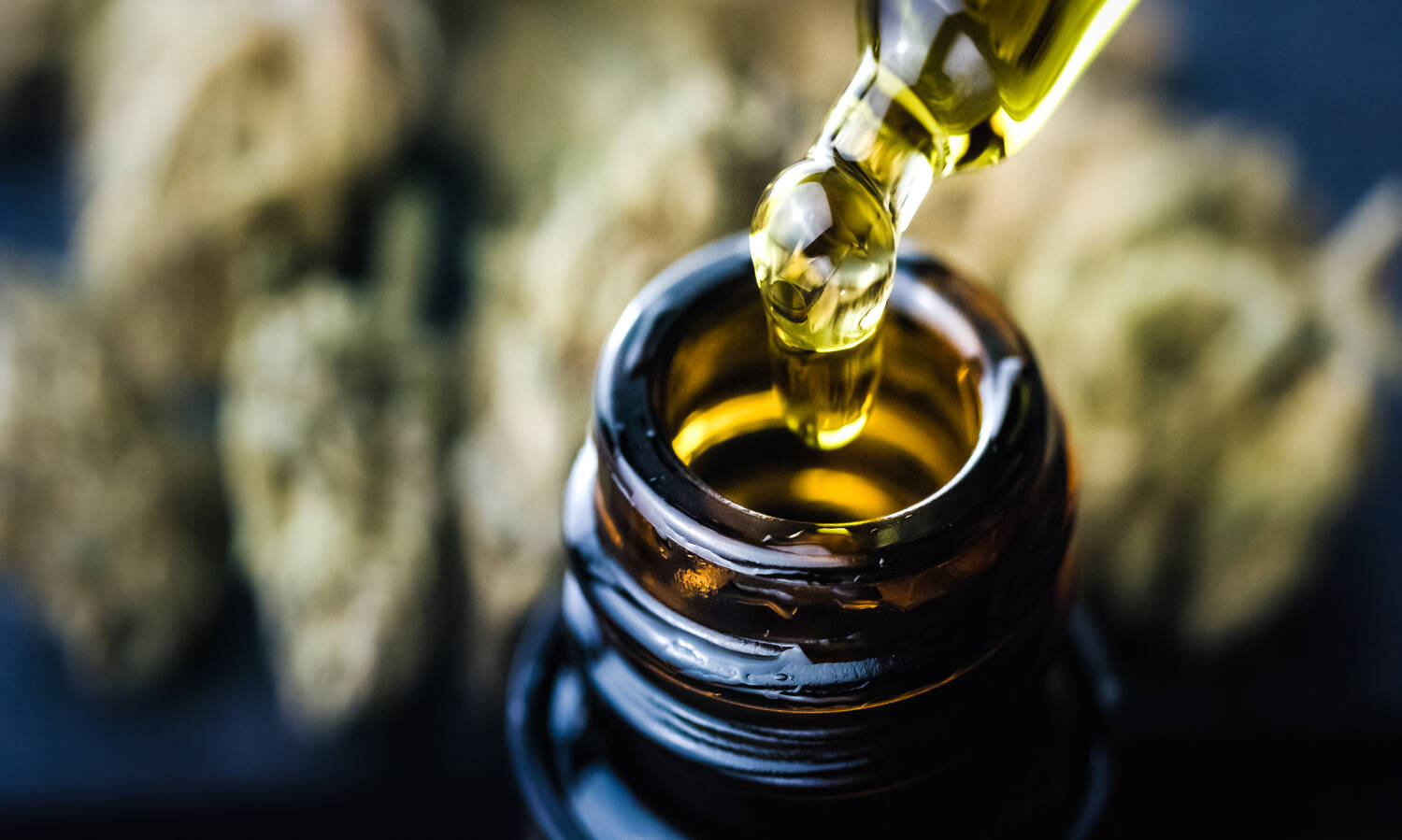
What every parent should know about giving CBD to their child
This article originally appeared on Cannabis.net and has been republished with permission.
Of course, when a child is suffering, parents will do whatever they can to help them. It can be especially challenging and emotionally draining for parents of children who have been diagnosed with treatment-resistant or difficult-to-treat conditions such as epilepsy, autism, chronic pain, anxiety and more. However, the Food and Drug Administration (FDA) has only approved one condition that can legally be treated with CBD, and that is epilepsy.
In 2018, the FDA approved Epidiolex, a cannabis-based drug recommended for use in certain types of epilepsy. Since then there have been other similar pharmaceutical versions used in epilepsy. However, what about the CBD oils that are commonly used and can even be bought online and in convenience stores?
Photo by CasarsaGuru/Getty Images
RELATED: Poll: A third of parents think consuming CBD is the same as cannabis
That hasn’t stopped parents from exploring the use of CBD for their children. Finally, it has a very good safety profile – it won’t even get you high. A recent survey found that about three-quarters of parents in the United States consider CBD to be a good alternative for their children when traditional medications aren’t working.
Additionally, 83% of respondents believe the FDA should regulate CBD products, and 74% believe their use should require a prescription from a doctor. The results also showed that more than 90% of parents have never given CBD to their children, while 2% have and 4% have considered giving it. Of those parents who gave or considered, 29% said they discussed it with their healthcare providers. The most common reasons parents give CBD to their children were anxiety, followed by sleep issues, ADHD, muscle pain, autism and finally general health.
These results show that despite CBD being so readily available and legal, parents still don’t know much about it. In fact, some of them even think it’s the same as cannabis.
Anyway, parents, here are the facts about CBD and what you need to know about using it for your kids:
- Cannabidiol does not make you high. It’s tetrahydrocannabinol (THC) that does that, and provided you’re buying your cannabis from a reputable brand, then you shouldn’t have to worry about its THC content.
CBD oils sold in pharmacies and dispensaries intended for medicinal or pediatric use will usually list their CBD to THC ratio and you can safely get one from a licensed dispensary with the lowest possible THC ratio such as 1 buy it and know it your child won’t get high. A small amount of THC is usually not felt, and in many cases can even enhance the therapeutic benefits of CBD.
- Children may be able to feel the effects of CBD faster and stronger. This means that if you decide to treat your child with CBD, you must always do so in a safe and controlled environment such as your home.
If your child is a teenager, do not allow them to drive after taking medication. While CBD generally doesn’t affect us adults, it may have a different effect on young children whose brains are still developing. This is especially important if your child is new to CBD medication and you’re both still evaluating how he or she feels.
 Photo by 24K Production/Getty Images
Photo by 24K Production/Getty Images
Some common effects that children may experience when treated with CBD include fatigue, sedation, decreased appetite, or diarrhea.
- Don’t just buy CBD products online. Always research the brand before making a purchase, whether it is for yourself or for your children.
What you read online can tell you that CBD is safe, gentle, and harmless. But keep in mind that this may not 100% be the case for children, especially if you are not buying from a reputable, reputable manufacturer. It’s bad enough that the CBD industry is unregulated anyway, but when consumers accidentally buy without doing the proper research, that’s where the danger can come in.
RELATED: Whole-plant medicinal cannabis may be more effective than CBD in treating epilepsy
Many CBD oils and other products sold online can contain harmful ingredients, and companies are not required to disclose all of the ingredients they use because the FDA doesn’t require it to be sold online. It’s just not safe for children or adults to consume any cannabis product. Always look for a certificate of analysis (COA) that well-known manufacturers enclose with their products.
- CBD is effective in treating a number of pediatric conditions. Even so, it is in your (and your child’s) best interest not to administer CBD oil without a doctor’s recommendation. As long as it is legally purchased and endorsed, the correct use of CBD can be extremely effective in treating conditions affecting children, including ADHD, seizure disorders, depression, anxiety, and autism.
Doctors can give you guidance on the right dosage as well as the CBD to THC ratio based on the condition you are trying to treat. Just be careful not to treat CBD oil as a panacea.
- CBD can interact with other medications your child may be taking. This is another important reason why you should consult a doctor before giving CBD to your children.
Taking cannabis medicines in combination with pharmaceutical medications can affect liver function as well as the enzymes the body needs to metabolize medicines.
Most importantly, always speak to your child’s doctor before putting them on CBD. The good news is that more and more medical providers are already familiar with the therapeutic effects of CBD, so even if it’s not for epilepsy, they may have up-to-date information on how to treat specific pediatric cases, as well as news on the best products or dosages to best serve your child.
This article originally appeared on Cannabis.net and has been republished with permission.

Post a comment: